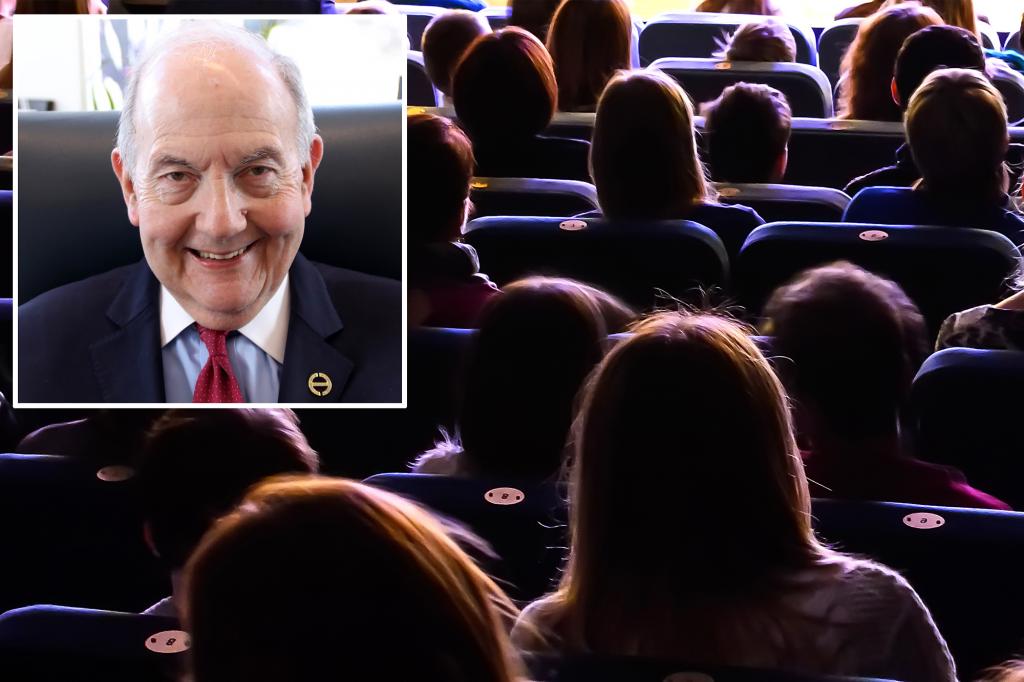Connecticut Lawmaker Proposes New Bill for Transparent Movie Showtimes
A Connecticut state legislator has introduced a groundbreaking bill that would require movie theaters to clearly display both trailer start times and actual film start times on tickets and advertisements. The proposed legislation, spearheaded by Representative Sarah Chen (D-Hartford), aims to eliminate confusion for moviegoers and create a more transparent cinema experience. If passed, Connecticut would become the first state to mandate such disclosures, potentially setting a nationwide precedent for theater operations.
The Drive Behind the Transparency Initiative
Representative Chen’s proposal comes after mounting complaints from constituents about inconsistent theater practices regarding preview durations. Currently, most theaters advertise only the scheduled showtime without specifying how many trailers will precede the feature film—a practice that can add 15-25 minutes to the actual runtime.
“Moviegoers deserve to know exactly when the film they paid to see will begin,” Chen stated at a press conference. “This isn’t about eliminating trailers—it’s about giving consumers the information they need to plan their evenings effectively, especially parents with young children or workers with tight schedules.”
The legislation would require:
- Clear labeling of both trailer start time and movie start time on all tickets
- Consistent disclosure in online listings and mobile apps
- Standardized formatting for in-theater signage
Industry Response and Potential Impacts
Theater chains have expressed mixed reactions to the proposal. While some independent theaters welcome the clarity, major chains remain cautious about operational changes. Marcus Theatres, which operates several locations in Connecticut, released a statement acknowledging the need for transparency but questioning legislative intervention.
“We understand the consumer perspective,” said theater manager David Rolands. “However, trailer lengths can vary based on studio requirements and last-minute changes. Implementing fixed start times might create more confusion if we need to make adjustments.”
Industry data reveals why the issue matters:
- The average trailer duration has increased 37% since 2013 (National Association of Theatre Owners)
- 72% of moviegoers report arriving late intentionally to skip previews (MPAA Consumer Survey)
- Preview durations vary by 12-28 minutes between different theater chains
Consumer Perspectives on Movie Showtime Transparency
Local focus groups show strong support for the measure. Hartford resident Michael Torres shared: “I recently missed the first 10 minutes of a movie because I didn’t realize this particular theater plays eight trailers. Had I known, I would have arrived 20 minutes later. This bill makes perfect sense.”
However, some film enthusiasts argue trailers are part of the cinematic experience. “There’s something magical about settling in with popcorn as the lights dim and previews roll,” said film studies professor Angela Martinez. “While transparency is good, we shouldn’t completely devalue the curated pre-show experience theaters create.”
The Economic and Operational Considerations
The proposed legislation raises several practical questions for theater operators:
- Concession sales: Theaters earn up to 40% of revenue from concessions, often sold during previews
- Staffing logistics: Clearer timelines could affect usher and cleaning crew scheduling
- Studio relationships: Film distributors often negotiate trailer placement as part of exhibition agreements
Representative Chen’s office has suggested a phased implementation plan that would give theaters 18 months to adjust their systems. The bill includes provisions for reasonable exceptions when last-minute content changes occur.
National Implications and Future Outlook
If successful, Connecticut’s initiative could inspire similar legislation nationwide. Several consumer advocacy groups have already expressed interest in replicating the model. The Digital Cinema Initiatives consortium, which sets technical standards for theaters, is reportedly monitoring the situation closely.
As streaming services condition viewers to content beginning instantly, traditional theaters face increasing pressure to modernize their practices. This bill represents part of a larger conversation about enhancing the value proposition of theatrical releases in the digital age.
What can consumers do? Contact your local representatives to voice support or concerns about the bill, which is expected to go to committee review next month. For Connecticut residents, public hearings will be announced through the General Assembly’s website in coming weeks.
See more CNET Live

